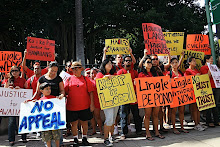Write a letter to the editor of a local newspaper.
Letters to the editor of a local newspaper can help to shape public opinion on a political issue. With our guidelines, you can write a letter to the editor in about 5 minutes. Below is an outline for a letter to the editor. We encourage supporters to use their own words while we just provide you with ideas.
I. A moratorium on the sale of ceded lands is (provide your own descriptive word(s)) for Hawaii.
A. For the next sentence, briefly use some historical fact(s) to explain why a moratorium is good or proper
1. examples include (BUT DON’T USE more than one in a single letter):
- the illegal overthrow of the Hawaiian Kingdom,
- that reparations have not yet been made,
- that reconciliation efforts for historical wrongs has not fully started, etc.,
B. In another sentence, briefly describe a current situation(s) we are experiencing now that justifies a need for a moratorium today
1. examples include (BUT DON’T USE more than one in a letter):
- bad economy right now, we need to hold onto our assets,
- unlike other states, Hawaii as extremely limited land and natural resources so selling lands permanently diminishes the amount of lands that belong to the general public through the government.
- Hawaii government has committed itself to reconciliation in the recent past, and its time we make good on that.
- Our Hawaii Supreme Court ruled on the issue and we should support our judiciary’s position on this unique and complex issue.
- A U.S. Supreme Court ruling on this issue diminishes our ability as a state to deal with unique local issues. A state created moratorium shows that we, as a state, make our own decisions regarding Hawaii issues.
C. A moratorium on the sale of ceded lands is (provide your own descriptive word(s)) for the future of Hawaii also.
1. examples to explain the above sentence include:
- a moratorium protects the public land trust for future generations
- by protecting public lands, we provide lawmakers with opportunity to use these resources for the benefit of the public and not just private interests.
- With an increasing population with no more natural resources such as land coming our way any time soon, protecting the lands now allows for better management of all our resources
- If Kamehameha Schools can manage all those lands in trust and generate revenue, why can’t the state?
II. Hawaii residents (or use “lawmakers”) should _(insert descriptive word here) a moratorium on the sale of ceded lands. A. Conclude the letter with a sentence that summarizes the previous sentences.
1. examples of concluding sentences might look like,
- A moratorium on ceded lands sales protects our present and future.
- A moratorium is an exercise of our own political will and ambition.
- The passage of a moratorium bill brings us one step closer to resolving historical wrongs we have yet to correct.
- If Native Hawaiians have a only moral claim, as Mark Bennett argues, a moratorium passed by our legislature is appropriate.
- If Native Hawaiian claims, according to Mark Bennett, are to be dealt with through the legislative process. Then, there is nothing wrong with the legislature passing a moratorium.
TIPS: Your letter to the editor should be no more than 175-200 words. You can send your letters to one or two e-mail addresses. Send your letters to letters@honoluluadvertiser.com, letters@starbulletin.com and citydesk@mauinews.com (or go to
http://vnr.oweb.net/vnr/add_submission.asp?categoryID=769&publicationID=110>
In the e-mail, be sure to include:
- Your name
- the name of the area you live in
- a phone number for the newspaper to call you at.








